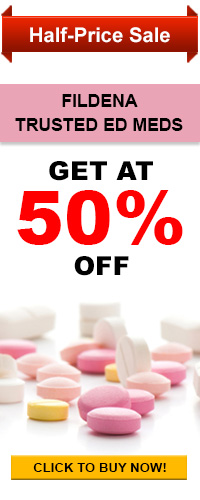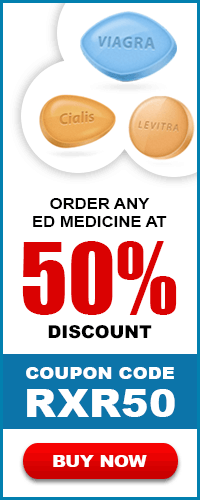Generic Name: Thioguanine (THYE oh GWA neen)
Brand Name: Tabloid
Dosage form: Tablet
Tabloid (Thioguanine) is used in treating certain types of cancers like, acute nonlymphocytic leukemias. It does its working by blocking cell protsein construction. Thioguanine is a well-known anti-cancer ("antineoplastic" or "cytotoxic") chemotherapy drug. The main chemical is classified as an "antimetabolite." The drug is majorly useful for: Acute myelogenous leukemia (induction, consolidation and maintenance) and for chronic myelogenous leukemia but may not be the preferred drug.
The capability of chemotherapy to kill or reduce cancer cells relies on its capability to halt or reduce cell division. Generally, the medication regulates by damaging the RNA or DNA that rules the cell how to copy itself in division. If the cells fail to divide, they eventually die. The quicker the cells are dividing, the more likely it is that chemotherapy that will kill the cells, resulting in shrinking of the tumor. Tabloid (Thioguanine) drug also activate cell suicide which is known as self-death or apoptosis.
Drug Description:
TABLOID brand with generic called as Thioguanine was incorporated and advanced by Hitchings, Elion, and assistant at Wellcome Research Laboratories. The tablet is one of the large series of purine analogues which interfere with nucleic acid biosynthesis, and is active across selected human neoplastic diseases. Thioguanine, can be chemically described as 2-amino-1,7-dihydro-6H-purine-6-thione. It is an analogue of the nucleic acid constituent guanine, and is firmly connected to anatomically and practically to Purinethol (mercaptopurine). Tabloid tablet Thioguanine is found in tablets form for oral administration. Each tablet contains 40 mg of the main active ingredient.
The inactive ingredients include gum acacia, lactose, magnesium stearate, potato starch, and stearic acid.
Indications:
Acute Nonlymphocytic Leukemias: the tablet is indicated for remission induction and remission consolidation treatment of acute nonlymphocytic leukemias.
Dosage:
Thioguanine is available in tablet form and has to be consumed orally. The amount of the chemical you will receive rely on many factors, including your height and weight, your general health or other health problems. Mainly the dosage pattern of Tabloid (Thioguanine) depends on the type of cancer or condition being treated. Your doctor will determine your dose and schedule.
Overdose:
Consult a doctor or seek medical help as soon as possible in case of overdose of Tabloid (Thioguanine). Symptoms of overdose may include excessive sweating; general body discomfort; nausea; severe dizziness; vomiting; weakness.
Missed Dosage:
If you miss a dose, consume it as soon as possible. If it is almost time for your next dose, skip the missed dose and go back to your regular dosing schedule. Do not consume 2 doses at once.
Safety Information:
- The tablet may reduce body's ability to fight against infection. Prevent infection by avoiding contact with people with colds or other infections. Consult doctor in case of any signs of infection, including fever, sore throat, rashes, or chills.
- The tablet may decrease number of clot-forming cells which are also called as platelets in blood. To restrict bleeding, avoid circumstances in which bruising or injury may occur. Take care and visit doctor in any unusual bleeding, bruising, blood in stools, or dark, tarry stools.
- Avoid vaccination with live virus vaccines like: measles, mumps and oral polio while you are getting treated with this tablet.
- Laboratory tests, with complete blood cell counts, platelet levels, or liver function tests, is suggested to be monitored for recording your progress or to check for side effects. Be sure to keep all doctor and lab appointments.
- Use the tablets with caution in the elderly as they may be more sensitive to its effects.
Using guide:
- Consume this medication orally with or without food along with a full glass of water, usually once daily or as directed by your doctor.
- Drink plenty of fluids while consuming this medication. Doing this may help you to reduce risk of side effects.
- The dosage is basically based on your body weight, medical condition, and response to treatment. Increase dosage pattern than prescribed, will not lead to improve your condition any faster, and but will increase the risk of serious side effects.
- Proper discard pattern should be performed for disposal of medicine.
Storage:
The tablet is suggested to be stored at room temperature approx. between 59° and 77° F (15° and 25° degrees C). Tabloid (Thioguanine)tablets are to be stored away from heat, moisture, and light. Do not store in the moisturized place like bathroom. Keep the tablet out of the reach of children, infants and pets.
Side Effects:
Some common side effects due to intake of pill may include: Loss of appetite; nausea; vomiting.
Severe side effects may include: serious allergic reactions like – rashes; hives; difficulty breathing; tightness in the chest; swelling of the mouth, face, lips, or tongue; cough or sore throat; dark urine; fever or chills; infection; joint pain; pale stools; severe or prolonged nausea or vomiting; stomach pain or bloating; sudden weight gain; swelling of the mouth; unusual bruising or bleeding; unusual paleness; unusual tiredness; yellowing of the skin or eyes.
Precautions:
- Avoid consuming aspirin, or products containing aspirin unless your doctor specifically permits to have it along with this tablets.
- Strictly do not administer any kind of immunization or vaccination without doctor's approval while getting treated with this medication.
For both men and women: Avoid conceive a child or getting pregnant. Blockage methods of contraception, such as condoms, are highly suggested. Consult doctor when you are allowed to safely become pregnant or conceive a child after therapy is completed. Breast feeding while consuming the tablet, Thioguanine is strictly to be avoided.






